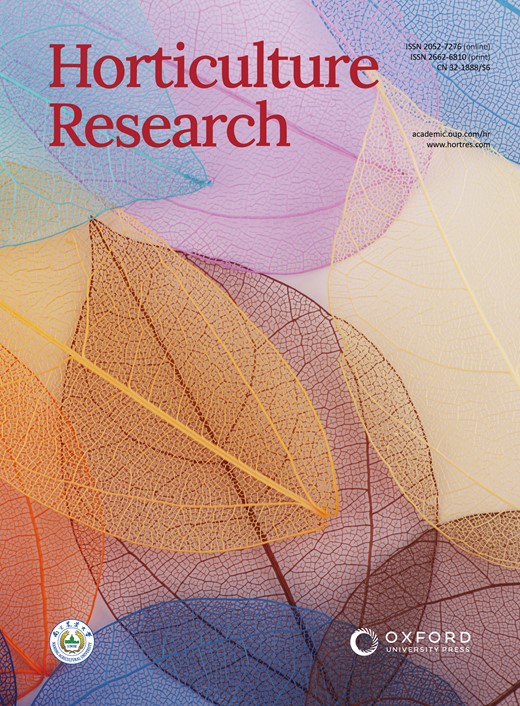Melatonin in Plant Pathogen Defense: A Review of Its Role in Horticultural Crops
IF 8.7
1区 农林科学
Q1 Agricultural and Biological Sciences
引用次数: 0
Abstract
Horticultural crops have important economic value in the world. Biotic stress has serious impacts on horticultural crops’ growth and development as well as yield. Melatonin, a multifunctional signaling molecule, has been increasingly documented to play a pivotal role in mediating plant defense responses against diverse biotic stressors, including bacterial, fungal, and viral pathogens in horticultural crop species. Previous studies showed that exogenous melatonin treatment significantly improved horticultural crops growth and increased their tolerance to biotic stress. Although there are numerous studies to show that exogenous melatonin treatment can markedly improve the tolerance for horticultural crops in response to biotic stress, the role of melatonin in biotic stress responses remains unclear and requires clarification. In the review, we summarize the effects of melatonin on horticultural crops’ disease resistance. Moreover, we assess future perspectives in melatonin research and its applications to improve horticultural crop production and tolerance for biotic stress. This review explores future research directions and potential applications to enhance the productivity and biotic stress tolerance of horticultural crops, and also provides a theoretical basis for enhancing the scientific understanding of the role of melatonin in response to biotic stress in horticultural crops.褪黑素在植物病原体防御中的作用:在园艺作物中的研究进展
世界园艺作物具有重要的经济价值。生物胁迫严重影响园艺作物的生长发育和产量。褪黑素是一种多功能信号分子,在园艺作物中介导植物对多种生物胁迫的防御反应中发挥着关键作用,包括细菌、真菌和病毒病原体。先前的研究表明,外源褪黑素处理显著改善了园艺作物的生长,增加了它们对生物胁迫的耐受性。尽管有大量研究表明外源褪黑激素处理可以显著提高园艺作物对生物胁迫的耐受性,但褪黑激素在生物胁迫反应中的作用尚不清楚,需要澄清。本文就褪黑素对园艺作物抗病性的影响作一综述。此外,我们评估了褪黑素研究的未来前景及其在提高园艺作物产量和生物胁迫耐受性方面的应用。本文综述了褪黑素在提高园艺作物生产力和生物胁迫耐受性方面的研究方向和应用前景,并为进一步科学认识褪黑素在园艺作物生物胁迫响应中的作用提供了理论基础。
本文章由计算机程序翻译,如有差异,请以英文原文为准。
求助全文
约1分钟内获得全文
求助全文
来源期刊

Horticulture Research
Biochemistry, Genetics and Molecular Biology-Biochemistry
CiteScore
11.20
自引率
6.90%
发文量
367
审稿时长
20 weeks
期刊介绍:
Horticulture Research, an open access journal affiliated with Nanjing Agricultural University, has achieved the prestigious ranking of number one in the Horticulture category of the Journal Citation Reports ™ from Clarivate, 2022. As a leading publication in the field, the journal is dedicated to disseminating original research articles, comprehensive reviews, insightful perspectives, thought-provoking comments, and valuable correspondence articles and letters to the editor. Its scope encompasses all vital aspects of horticultural plants and disciplines, such as biotechnology, breeding, cellular and molecular biology, evolution, genetics, inter-species interactions, physiology, and the origination and domestication of crops.
 求助内容:
求助内容: 应助结果提醒方式:
应助结果提醒方式:


